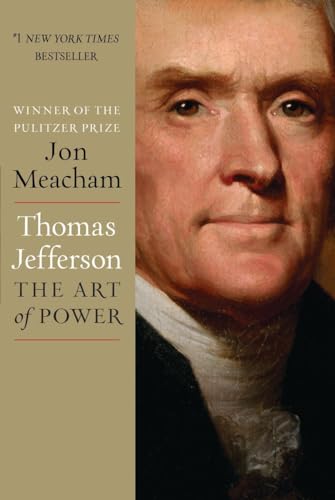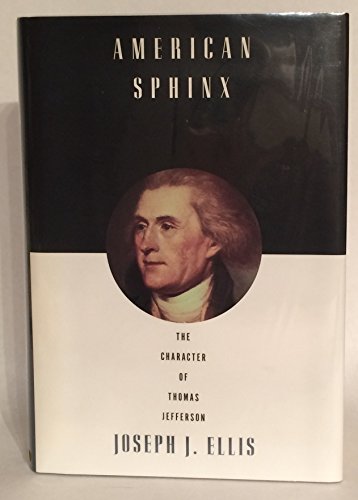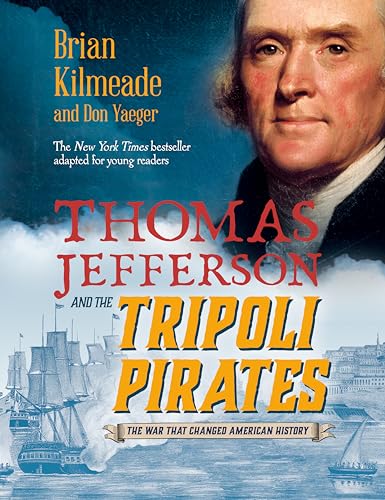5 Fantastic Thomas Jefferson Books
Thomas Jefferson, a Founding Father of the United States and the principal author of the Declaration of Independence, stands as an iconic figure in American history. Born on April 13, 1743, in Shadwell, Virginia, Jefferson's multifaceted legacy encompasses his roles as a statesman, diplomat, architect, and polymath. Serving as the third President of the United States from 1801 to 1809, Jefferson's vision for a democratic and agrarian society profoundly influenced the nation's early development. His intellectual contributions extend beyond politics, as he was an avid supporter of education, a skilled architect responsible for designing Monticello, and a connoisseur of science and literature. Despite his significant accomplishments, Jefferson's legacy is also marked by complex contradictions, notably his ownership of slaves and his idealistic pursuit of liberty. His enduring impact on American ideals and governance makes him a central figure in the narrative of the nation's founding and development.
"Thomas Jefferson: The Art of Power"
by Jon Meacham (2012)
Thomas Jefferson hated confrontation, and yet his understanding of power and of human nature enabled him to move men and to marshal ideas, to learn from his mistakes, and to prevail. Passionate about many things—women, his family, books, science, architecture, gardens, friends, Monticello, and Paris—Jefferson loved America most, and he strove over and over again, despite fierce opposition, to realize his vision: the creation, survival, and success of popular government in America. Jon Meacham lets us see Jefferson’s world as Jefferson himself saw it, and to appreciate how Jefferson found the means to endure and win in the face of rife partisan division, economic uncertainty, and external threat. Drawing on archives in the United States, England, and France, as well as unpublished Jefferson presidential papers, Meacham presents Jefferson as the most successful political leader of the early republic, and perhaps in all of American history.
"American Sphinx: The Character of Thomas Jefferson"
by Joseph J. Ellis (1997)
For the historian Joseph J. Ellis, the experience of writing about Jefferson was "as if a pathologist, just about to begin an autopsy, has discovered that the body on the operating table was still breathing." In American Sphinx, Ellis sifts the facts shrewdly from the legends and the rumors, treading a path between vilification and hero worship in order to formulate a plausible portrait of the man who still today "hover[s] over the political scene like one of those dirigibles cruising above a crowded football stadium, flashing words of inspiration to both teams." For, at the grass roots, Jefferson is no longer liberal or conservative, agrarian or industrialist, pro- or anti-slavery, privileged or populist. He is all things to all people. His own obliviousness to incompatible convictions within himself (which left him deaf to most forms of irony) has leaked out into the world at large--a world determined to idolize him despite his foibles.
"Thomas Jefferson: Author of America"
by Christopher Hitchens (2005)
In this unique biography of Thomas Jefferson, leading journalist and social critic Christopher Hitchens offers a startlingly new and provocative interpretation of our Founding Father—a man conflicted by power who wrote the Declaration of Independence and acted as ambassador to France yet yearned for a quieter career in the Virginia legislature. A masterly writer, Jefferson was an awkward public speaker. A professed proponent of emancipation, he elided the issue of slavery from the Declaration of Independence and continued to own human property. A reluctant candidate, he left an indelible presidential legacy.
"Thomas Jefferson and the Tripoli Pirates: The Forgotten War That Changed American History"
by Brian Kilmeade and Don Yaeger (2020)
When Thomas Jefferson became president in 1801, America was deeply in debt and needed its economy to grow quickly, but its merchant ships were under attack. Pirates from North Africa routinely captured American sailors and held them as captives demanding ransom and tribute far beyond what the new country could afford. Jefferson found it impossible to negotiate a truce, and decided to move beyond diplomacy. He sent the U.S. Navy and Marines to blockade Tripoli--launching the Barbary Wars and beginning America's journey toward future superpower status. This vivid and accessible young readers adaptation of the New York Times bestseller features an exclusive new introduction, extensive back matter, and eye-catching art throughout. Chronicling a crucial moment in American history, this historical thriller will excite and inspire the next generation of patriots.
"Thomas Jefferson: A Life"
by Willard Sterne Randall (2014)
Combining firsthand scholarship and material drawn from the Jefferson Papers, Willard Sterne Randall calls on his skills as an investigative journalist to challenge long-held assumptions about the reasoning, motives, and works of this sage, philosopher, politician, and romantic. Exploring both Jefferson’s interior and public struggles, Randall sheds important light on Jefferson’s thoughts on slavery and his relationship with the slave Sally Hemmings, as well as Revolutionary and diplomatic intrigues.




